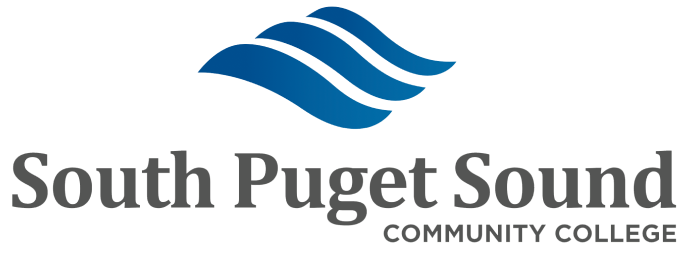via ThurstonTalk
Broaching big topics can be daunting. But it’s also an invaluable way to learn, develop, question and grow, especially during our student years. At South Puget Sound Community College (SPSCC), facilitators from the A. Barbara Clarkson Diversity, Equity & Inclusion Center (DEIC) are promoting open conversation in a safe, non-judgmental environment thanks to a series of Uncomfortable Conversations.
These are actor-facilitated scenarios based on actual, anonymously submitted suggestions from folks on campus. Led by Sociology Adjunct Professor Kate Ayers, Director of the DEI Center Jasmin Faulk-Dickerson and members of the Student Senate, attendees can ask questions and provide comments in real time on a variety of topics.
Taking On Uncomfortable Conversations at SPSCC
In this first year of Uncomfortable Conversations, three sessions were held monthly. April 18 looked at race and ethnicity, May 9 addressed gender and LGBTQ+ issues and June 13 focused on ableism and ageism. Faulk-Dickerson explains that curated scenes are presented by actors made up of students, faculty and staff. After each segment, the audience can interact while the actors respond in character.
The process has gone so well that Faulk-Dickerson hopes to extend it into a full-year schedule in the fall and some faculty have indicated they’ll make it required attendance in their classroom. Students are now volunteering to share experiences and have their stories included in upcoming performances. “Students are very instrumental in moving these topics forward,” says Ayers, “and it’s gone great, in fact better than what we thought.” Attendance doubled between sessions one and two alone.
Respectfully Tackling the Hard Topics of Gender, Sexuality, Race, Ableism and Ageism
Uncomfortable Conversations came about when the DEIC’s student senate representative noticed that fellow students seemed to have lost decorum and filters during the pandemic. So Faulk-Dickerson and the DEIC team looked for ways to address the topic in a new way now that students were returning to campus on a regular basis.
“We wondered how we could talk about it,” says Faulk-Dickerson, “but a workshop seemed too stale and academic. We wanted to showcase the issues, not just tell people. We really believe this is a fantastic way to have these conversations without defensiveness or agitation.” Organizers want to facilitate what she calls a broader, more adaptable version for next year and even offer the programming to – or within – the Thurston County community.
Professor Kate Ayres has done this type of delicate work for many years. “I thought this might be a safe, interactive way to practice having difficult conversations,” she says. “It’s very peer-on-peer and we’ve made a real effort to use students as our acting base. Now students are approaching us to be a part and lend their voices to future topics. I love that collaboration and participation.”
Diversity, Equity & Inclusion Center Meets Students Where They Are
The DEIC serves all SPSCC students and works to foster connections, build community and offer support. Everyone welcomed by the DEIC can access a dedicated educational planner, financial aid advisor, peer mentors, and support with textbooks, scholarships and technology. Much of DEIC’s programming comes with access to foundation funds towards program scholarships. Students can sign up to participate all year round but it’s always best to start the process before the next quarter approaches.
Their IGNITE Program assists underrepresented communities who have experienced barriers to education with mentorship, support services, and community. Additionally, they recently hosted the tenth annual FIRE Summit for Native youth, which welcomes middle- and high school students to explore campus and learn about career pathways. This year’s daylong session welcomed members of the Nisqually Tribe, the Squaxin Island Tribe, the Confederated Tribes of the Chehalis Reservation and the Skokomish Tribe.
The DEI center is itself a Safe Zone for individuals feeling threatened. It’s located in building 22 and is open to students both in-person and virtually. Email the team at deic@spscc.edu.
Taking that first step is always the hardest part of any project. But when the first step is an uncomfortable conversation, it’s even harder still. Thanks to caring, supportive people like Ayers, Faulk-Dickerson and the entire SPSCC DEIC community, you can tackle big topics knowing they’ve got your back and the future is bright.
